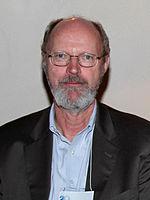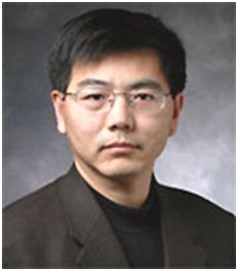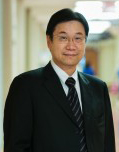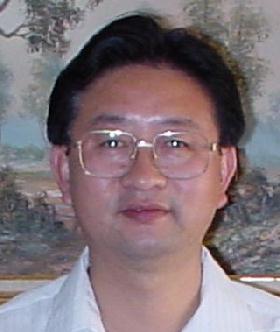Keynotes

Prof. Robert Howard Grubbs

Nobel Laureate, Victor and Elizabeth Atkins Professor of Chemistry at the California Institute of Technology, USA
Title: Polymer Biomaterial for Health
Biography:
Dr. Grubbs received B.S in Chemistry from University of Florida in 1963; M.S. and Ph.D. in Chemistry from Columbia University in 1965 and 1968. He was NIH Postdoctoral Fellow at Stanford University from 1968-69. He is the Victor and Elizabeth Atkins Professor of Chemistry at the California Institute of Technology, Pasadena, California, USA, and faculty member since 1978. He was at Michigan State University from 1969 to 1978 achieving the rank of Associate Professor.
The Grubbs group discovers new catalysts and studies their fundamental chemistry and applications. Catalysts facilitate the transformation of organic molecules and are used widely in industry and academia for the preparation of important organic compounds and polymers. A family of catalysts for the interconversion of olefins, the olefin metathesis reaction has been discovered in the Grubbs laboratory. In addition to their broad usage in academic research, these catalysts are now used commercially to prepare new pharmaceuticals, composites for structural applications and for the conversion of biorenewable carbon sources into fuels and commodity chemicals. Catalysts for other useful transformations are also being developed and studied in detail.
His awards have included the Nobel Prize in Chemistry (2005), ACS Award in Polymer Chemistry (1995), Benjamin Franklin Medal in Chemistry (2000), Pauling Award Medal 2003), Arthur C. Cope Award (ACS) (2002), Havinga Medal (2006) (Leiden University), Golden Plate Award (2006) (Academy of Achievement), ACS Award for Creative Invention (2009), Gold Medal of the American Institute of Chemists (2010), ACS Roger Adams Award in Organic Chemistry (2011). He was elected to the National Academy of Sciences (1989), Fellow of the American Academy of Arts and Sciences (1994), the Honorary Fellowship of the Royal Society of Chemistry (2006), Fellows of the American Chemical Society (2009), ACS Polymer Division Fellow (2010). He has 500+ publications and 115+ patents based on his research.
Prof. Xing Lei

Jacob Haimson Professor, Director of Physics Division Diplomate, American Board of Radiology. Department of Radiation Oncology, Stanford University School of Medicine, USA
Title: Imaging, Image Guided Therapy, and Beyond
Abstract:
During last decade tremendous progress has been made in the development of medical imaging, image guided interventions, nanotechnology, molecular imaging probes and instrumentations. These new technologies have provided significant opportunities to advance
medical practice and patient care. In this talk I will first present an overview of current practice of image guided interventions, in particularly image guided radiation therapy and recent technical developments in on-treatment volumetric image guidance. The need for molecular imaging and molecular image guidance will be highlighted. I will then talk about our recent research on high resolution and high sensitivity X-ray and radionuclide molecular imaging techniques, including X-ray luminescence computed tomography, X-ray fluorescence computed tomography, Cerenkov imaging and its potential application in image guided surgery.
Biography:
Dr. Lei Xing is currently the Jacob Haimson Professor of Radiation Physics and Director of Radiation Physics Division of Radiation Oncology Department at Stanford University. He also holds affiliate faculty positions in Medical Informatics, Bio-X and Molecular Imaging Program at Stanford. Dr. Xing obtained his PhD in Physics from the Johns Hopkins University in 1992 and received his Medical Physics training at the University of Chicago. He has been a member of the Radiation Oncology faculty at Stanford since 1997. His research has been focused on inverse treatment planning, tomographic image reconstruction, CT, optical and PET imaging instrumentations, image guided interventions, nanomedicine, and applications of molecular imaging in radiation oncology. Dr. Xing is an author on more than 190 peer reviewed publications, a co-inventor on many issued and pending patents, and a co-investigator or principal investigator on numerous NIH, DOD, NSF, ACS grants and projects from other funding agencies and corporates. He and his lab members have received numerous awards from ACS, AAPM, ASTRO, and RSNA in the past decade. Dr. Xing is on the editorial boards of a number of journals in radiation physics and medical imaging.
Prof. Kendall Ho, MD, FRCPC

Director, eHealth Strategy Office, Department of Emergency Medicine, The University of British Columbia, Canada
Title: Trends in eHealth: implications for Cooperation in technology-health research, commercialization and applications
Biography:
Dr. Kendall Ho is a practicing emergency medicine specialist. He is the founding Director of the eHealth Strategy Office, and was the immediate past Associate Dean of the Division of Continuing Professional Development and Knowledge Translation (CPD/KT) up until February 2008, when CPD/KT was transitioned to two units: Continuing Professional Development (CPD) and the eHealth Strategy Office (eHealth). Kendall is a member of the Royal College of Physicians and Surgeons of Canada’s Professional Development Committee and a collaborator with the World Health Organization eHealth Observatory. He is the executive director of the Technology Enabled Knowledge Translation Investigative Centre (TEKTIC) interdisciplinary research team in BC and the Vice President of the International Association of Humanitarian Medicine.
Dr. Ho’s academic and research interests fall into the domain of technology enabled knowledge translation (TEKT) – the use of information technologies to accelerate the incorporation of latest health evidence into routine practice. Specific directions within TEKT include telehealth, information and communication technologies (ICT) and patient safety, ICT and public engagement, and evidence based policy translation in eHealth. He is a recipient of a number of provincial, national, and international research grants in eHealth and eLearning, and has published related papers and textbook chapters in these subjects.
Prof. Yanchun Zhang

Director, Centre for Applied Informatics, Victoria University, Australia
Title: Medical Big Data: Medical Data Mining and Innovative Applications
Abstract:
Due to the recent development or maturation of database, data storage, data capturing, patient monitoring and sensor technologies, huge medical and health data have been generated at hospitals and medical organizations at unprecedented speed. Those data are a very valuable resource for improving health delivery, health care and decision making and better risk analysis and diagnosis. Health care and medical service is now becoming more data-intensive and evidence-based since electronic health records are used to track individuals' and communities' health information (particularly changes). These substantially motivate and advance the emergence and the progress of data-centric health data and knowledge management research and practice.
In this talk, we will introduce several innovative data mining techniques and case studies to address the challenges encountered in e-health and medical big data. This includes techniques and development on data streams, data clustering, correlation analysis, pattern recognition, abnormally detection and risk predictions.
Biography:
Yanchun Zhang is a full Professor and Director of Centre for Applied Informatics at Victoria University. Dr Zhang obtained a PhD degree in Computer Science from The University of Queensland in 1991. His research interests include databases, data mining, web services and e-health. He has published over 220 research papers in international journals and conference proceedings including top journals such as ACM Transactions on Computer and Human Interaction (TOCHI), IEEE Transactions on Knowledge and Data Engineering (TKDE), and a dozen of books and journal special issues in the related areas. Dr. Zhang is a founding editor and editor-in-chief of World Wide Web Journal (Springer) and Health Information Science and Systems Journal (BioMed Central), and also the founding editor of Web Information Systems Engineering Book Series and Health Information Science Book Series. He is Chairman of International Web information Systems Engineering Society (WISE). He was a member of Australian Research Council's College of Experts (2008-2010), and is one of the National "Thousand Talents Program" Experts in China (2010-- ).